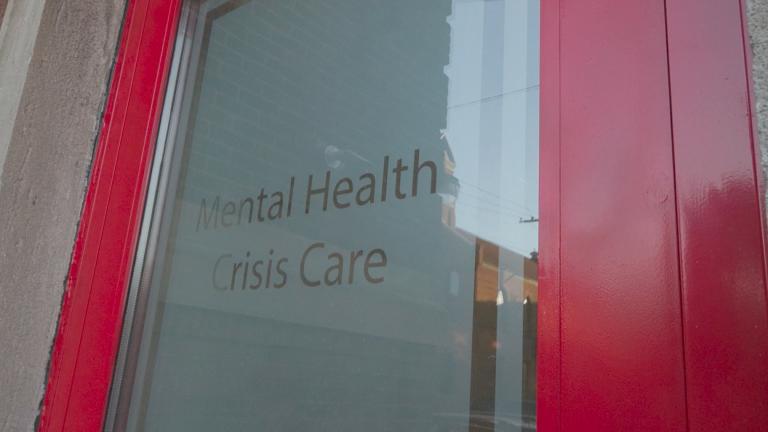 (Photo by @plqml // felipe pelaquim on Unsplash)
(Photo by @plqml // felipe pelaquim on Unsplash)
A new law signed last week by Gov. J.B. Pritzker will require health insurers to cover medically necessary services and treatments for mental, emotional, nervous, or substance use disorders and conditions.
“I’m proud and inspired to be a part of making bold changes to our mental health care services in Illinois that will help all Illinoisans receive the essential services and care they need, no matter where they live or their socioeconomic status,” Gov. J.B. Pritzker said in a statement upon signing the legislation. “Mental health care is health care. It’s medically necessary, it’s lifesaving, and it can help address the systemic trauma that has held many communities back for far too long.”
Illinois is now the third state in the nation to pass such legislation, which advocates say is needed now more than ever. California and Oregon have passed similar legislation.
“We’re at a critical moment where the need for mental health care is greater than ever before,” said David Applegate, director of policy for The Kennedy Forum of Illinois. “Our communities are really facing two public health crises right now: the COVID-19 pandemic and then the ongoing mental health and addiction crisis that’s been significantly made worse by the pandemic.”
About 4 in 10 adults have reported anxiety or depressive disorder during the pandemic, up from 1 in 10 adults prior to the pandemic, according to a report from the Kaiser Family Foundation.
“Despite an increase in need, too often what we’ve seen in the past is people are unable to access care when their health plan decides not to pay for the care they need and denies their treatment,” Applegate said. “People are forced to pay thousands out of pocket for care or forgo care completely.”
Currently, insurance coverage decisions are opaque, according to Heather O’Donnell, senior vice president of public policy and advocacy for Thresholds, an organization that serves people with mental health illnesses and substance use disorders.
“When an insurance company says you’re not eligible, it’s important to understand what criteria they’re using,” she said. “Now more than ever we need to understand why an insurance company can deny care recommended by a physician or care provider.”
The legislation, which goes into effect Jan. 1, 2023, seeks to make coverage decisions more transparent by establishing clear definitions and standards for instances in which services and treatments are deemed medically necessary.
The law also requires all Medicaid managed care organizations and commercial insurers to use publicly available guidelines published by nonprofit clinical societies in determining what constitutes as a medical necessity.
“Basically, when a doctor says this is what needs to be done, insurers can’t deny it,” Illinois Rep. Deb Conroy said of the legislation she sponsored. “Now, they’re are waiting until someone is critically ill and in a crisis to cover it.”
Under the new law, insurers will be prohibited from limiting benefits to short-term, acute treatment or refusing to cover certain types of care.
“An insurance company can’t say they’ll cover only six treatment sessions when a doctor says (someone) needs 12,” Conroy said.
And if an insurer denies coverage, people can appeal those decisions, which advocates say is vital.
“We see every day, currently, that sometimes many patients are wrongly denied care, and a provider can help obtain documentation or make the case for why they are eligible for a service,” said O’Donnell. “An appeals process is crucial to make sure that an insurance company didn’t miss something.”
The Illinois Association of Medicaid Health Plans, which represents health plans that participate in Medicaid managed care in Illinois, supports the legislation.
“From our vantage point, mental health parity is one piece of the behavioral health puzzle, and we look forward to working with leader Conroy and (state Sen. Laura) Fine and the provider community to continue to strengthen behavioral health access for Medicaid members,” said Samantha Olds Frey, CEO of the Illinois Association of Medicaid Health Plans.
Uniform, transparent guidelines will also make it easier for providers to submit the necessary documentation to insurers for coverage, according to Olds Frey.
“We don’t want the provider community feeling frustrated and saying, ‘We don’t know what criteria you’re looking at,’” she said, adding a lack of clinical documentation is one of the main reasons people are denied coverage. “We think making sure that there’s a clear process for providers to get that information and making sure we get all the information we need is in everybody’s best interest.”
Not only does the legislation remove obstacles in accessing care, but it also helps destigmatize mental health and substance use disorders, according to Applegate.
“Mental health care is health care, and it shouldn’t be stigmatized or looked at differently,” he said. “If I go to get treatment for a broken leg, my health insurance pays for it and covers it, no questions. … It should be the same if go to doctor and suffer from depression or anxiety or have an addiction.”
Contact Kristen Thometz: @kristenthometz | (773) 509-5452 | [email protected]








